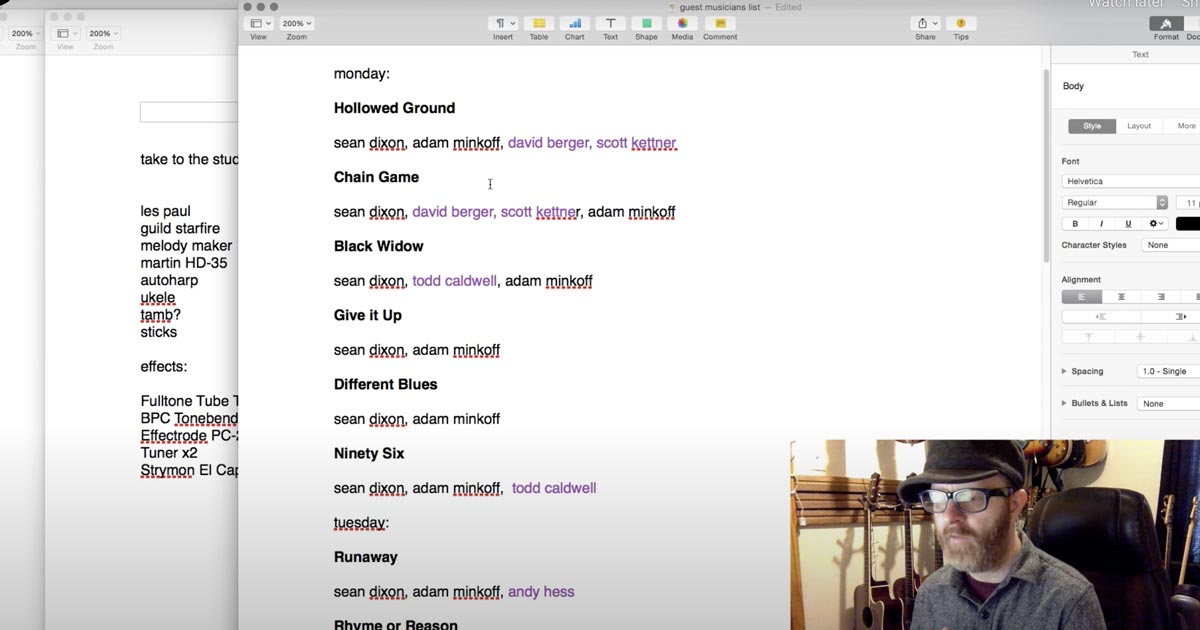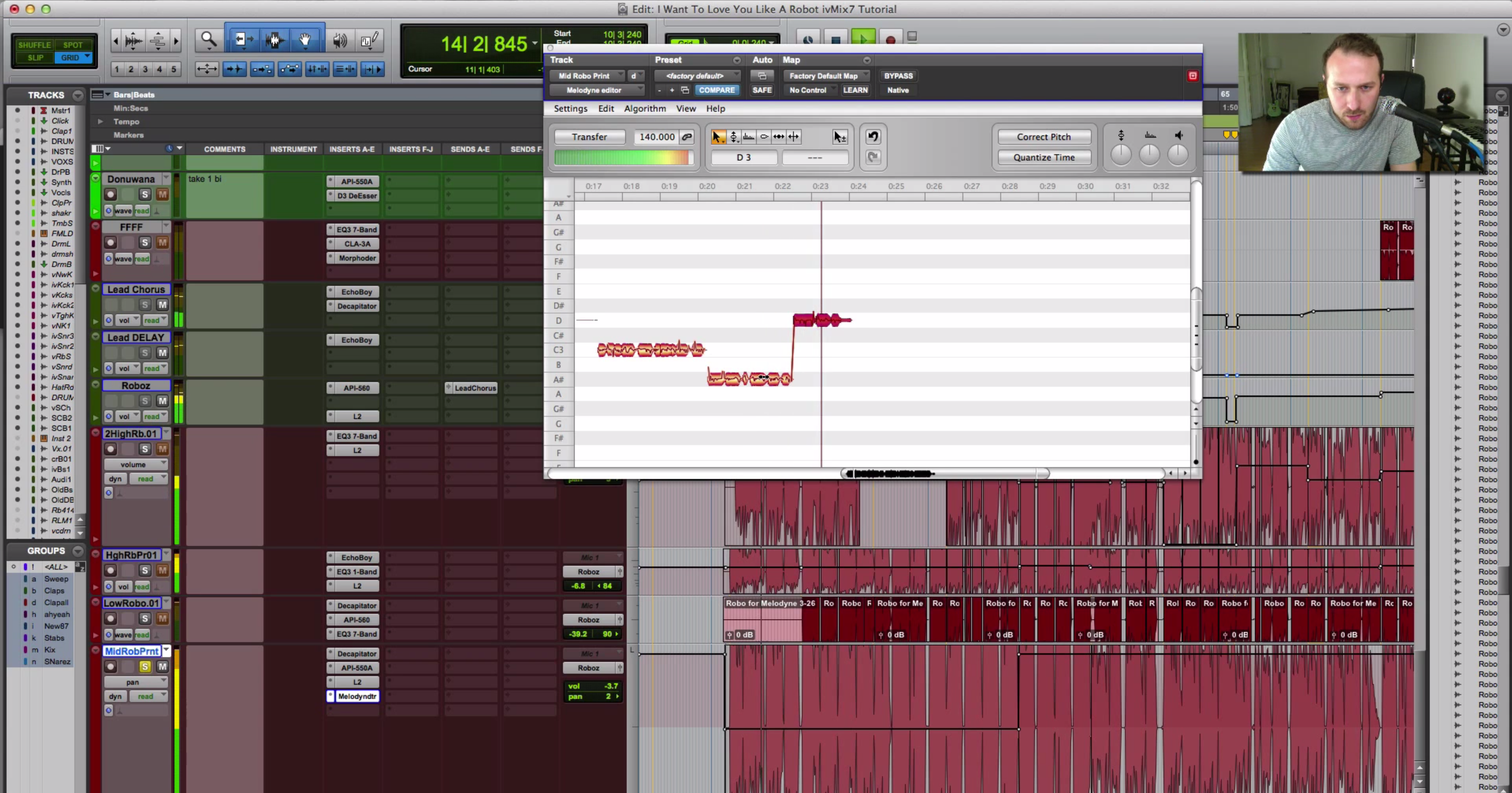10 Songwriting Tips You Might Not Have Tried
Article Content
How many of you sit down sometimes to write a song only to find you end up doing the same things over and over? I know I do, my fingers want to go to the same frets on my guitar and I end up playing the same old groove on the drums.
It doesn’t have to be that way. In fact, I found creativity in many a strange place recently when writing my solo EP. I didn’t have the luxury of input from other musicians, so it was easy to fall into the same old writing behaviors.
I’m going to share some tips that really helped me, in hopes that they help you if you’re ever stuck for ideas!
Some of these will directly help you write a new song, but some are more practice techniques to freshen your mindset in general, which may come in handy when it comes to writing.
**WARNING** If you have an intolerance for trying new things, please consult your doctor before proceeding.
1. Use Effects Before Mixing
Considering you’re reading this on The Pro Audio Files, let’s start with something a little more ‘Pro- Audio-y’ than what will follow.
With this tip, the idea is to implement an effect so that it is integral to the resulting melody/riff. Forget mixing for a moment and think about how effects have added to a musician’s ‘sound’. U2’s ‘The Edge’ utilizes delay to create his signature sound and Jack White uses a lot of Pitch modulation in his performances.
Why not pick a random time/pitch effect and say “This effect will be the basis of a new riff/melody” … Try adding a delay to your writing instrument and dial it in until it’s more of a note repeater than just a complimentary effect. Make it part of the sound and experiment with the time/mix and feedback parameters.
2. Change Your Tuning
I did this for my newest release. I was becoming increasingly uninspired by what I was writing in standard tuning, so I changed to open-B (this also allowed me to play a few riffs originally performed on a 7-string).
This changed my way of thinking entirely, it was nearly impossible to write anything similar to what I was writing before.
Even down-tuning your guitar or using a capo can help.
3. KARAOKE!
Okay not quite, but hear me out.
Sing or create a vocal line on an instrumental version of a song you like, or even a song you don’t know that well.
This is great because it forces you to contribute to an already existing piece of work, as if you’re working with other musicians. You will most likely not mimic the singer’s original melodies, but that’s not what is important for this tip. This just serves as good practice to get the creative juices flowing. You could even write new lyrics for the song or a harmony to the existing vocal melody.
4. Pick Up an Unfamiliar Instrument
Now, you don’t have to be good at it, but let’s say you’re a guitarist — it might be worth sitting down at a piano to try some chord ideas or vice versa.
Even if it’s simple stuff, or even if you’re not very good at the instrument, you might stumble on a riff or a chord you might not have found otherwise.
Placing yourself outside your musical comfort zone definitely gives you a different way of thinking.
5. Experiment With MIDI
If you already have a sequence written out and you have no idea what to do with it, try pushing the tempo way up or down. You could even remove or add notes here and there for the sequence to work in a different time signature.
Transposing a MIDI sequence might be what you need or perhaps you need to change it from Major to Minor? MIDI makes it so easy to write and manipulate performances, so get experimenting if you haven’t already!
6. Arpeggiators
I don’t play much keyboard, but I love arpeggiators. They’re great for providing me with sequence which I can build upon.
Experiment with parameters like time, swing and octaves.
Even if you don’t use the sequence, you might be inspired to transfer the melody to another instrument.
7. Become Critical of Music You Like and Don’t Like
While it might seem like a chore to listen to music you’re not too keen on, it can be quite eye opening to see (or hear) how songs from other genres are put together. This is especially useful if you’re sick and tired of writing music that sounds the same and need to shake things up a bit.
Take note of the common arrangements you hear in the songs you listen to, whether good or bad. What instruments are used and how they are mixed? Listening to, and being critical of songs in other genres will keep you musically informed, which can be very inspiring.
8. Create a Story
Try and be creative outside music.
Write the premise of a story. Pick a feeling: sadness, excitement or even anger. Visually imagine the story in your mind.
As the images move in your head, create a soundtrack for it. What instruments are playing? Is it soft? Chaotic? This is a neat tip as it makes you almost work backwards. You focus on something that isn’t the music, and the music follows.
9. Take a Break
I’m sure a lot of you would agree that forcing creativity just doesn’t work. It certainly doesn’t get the best results.
Don’t panic, just take a break, go outside and take your mind off of writing.
Some of my best ideas came from spontaneous melodies in my head while I was out and about. That reminds me …
10. Use a Tape Recorder or Note Pad
While some of these tips might be a bit different to what you’re used to, this tip is a no-brainer. Having a recording app on your phone, or a note pad, can really save you from forgetting that awesome song idea or lyric you have in your head when you’re away from the studio.
It can help so much when you actually sit down to write music. Just take out all your rough recordings and notes and you’re instantly at an advantage! It doesn’t matter how good the quality is, or how structured the ideas sound, you’ll be able to build on what’s already there and fill in the gaps.
Conclusion
So there’s just a few tips and tricks that might come in handy the next time you’re at a musical roadblock.
Whether you go down the route of changing things up, going against your own grain, becoming super-analytical or just leaving the house, go forth and make amazing music!





